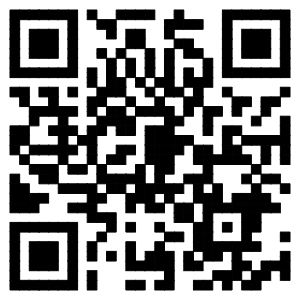剑桥商务英语高级阅读提高练习题
In terms of pure quantity of research and debate, business schools have performed amazingly in promoting management as a distinctive activity. No other discipline has produced as much in such a short period. It is unclear yet how much of it will stand the test of time, but for sheer industry, the business school deserve credit. Not a day goes by without another wave of research papers, books, articles, and journals.
In these terms, schools have produced a generally accepted theoretical basis for management. When it comes to knowledge creation, however, they find themselves in difficulties. They are caught between the need for academic rigor and for real-world business relevance, which tend to pull in opposite directions. The desire to establish management as a credible discipline leads to research that panders to traditional academic criteria. The problem for business school researchers is that they seek the approval of their academic peers rather than the business community. In the United States this has led to the sort of grand ‘paper clip counting' exercises that meet demands for academic rigor but fail to add one iota to the real sum of human knowledge.
Business schools have too often allowed the constraints of the academic world to cloud their view of the real world. Business school researchers seek provable theories - rather than helpful theories. They have championed a prescriptive approach to management based on analysis and, more recently, on fashionable ideas that soon disappear into the ether. The ‘one best way' approach encourages researchers to mould the idiosyncrasies of managerial reality into their tightly defined models of behavior. Figures and statistics are fitted into linear equations and tidy models. Economists and other social scientists label this cure smoothing. Meanwhile, reality continually refuses to co-operate.
Central to this is the tension between relevance and rigor. In a perfect world, there would be no need to choose between the two. But in the business school world, the need to satisfy academic criteria and be published in journals often tilts the balance away from relevance. In other words, it is often easier to pursue quantifiable objectives than it is to add anything useful to the debate about management. To a large extent, the entire business school system works against useful, knowledge-creating research. Academics have five years in which to prove themselves if they are to make the academic grade. It seems long enough. But it can take two or even three years to get into a suitable journal. They therefore have around three years, probably less, to come up with an area of interest and carry out meaningful and original research. This is a demanding timescale. The temptation must be to slice up old data in new ways rather than pursue genuinely groundbreaking, innovative research.
It is a criticism also made by some business school insiders. "Academic journals tend to find more and more techniques for testing more and more obscure theories. They are asking trivial questions and answering them exactly. There has to be a backlash," says Julian Birkinshaw of London Business School. In large part, the problem goes back to a time when business schools were trying to establish themselves. Up until the 1960s, American business schools were dismissed as pseudo-academic institutions, including the universities of which they often formed a part, regarded them as a little more than vocational colleges. Since then, most of the leading schools have undergone major reassessments and introduced sweeping changes. However, it is questionable whether those changes have gone far enough.
Questions:
15. What does the first paragraph suggest about the research generated by business schools?
A Its quality is variable.
B Its lasting value is uncertain.
C It has always been produced too quickly.
D It has had no influence on management.
16. In paragraph two, the writer argues that business school research___
A takes a negative view of the business community.
B as failed to give credibility to management as a discipline.
C is directed at the wrong audience.
D does not stand up to academic scrutiny.
17. In the third paragraph, the writer criticizes the theories of management produced by business schools for being___
A incomprehensible.
B contradictory.
C vague.
D inflexible.
18. In the fourth paragraph, the writer says that the business school system causes academics to___
A be satisfied with reinterpreting previous research.
B avoid complicated business issues.
C concentrate on very narrow fields of study.
D focus on topics no longer relevant to business needs.
19. What do we learn about business schools in the last paragraph?
A They are reluctant to admit to failings.
B They resent criticism of their academic journal.
C They used to be looked down on by other institutions.
D They are comfortable with the current situation.
20. What is the writer's purpose in this text?
A to express regret at the growth of business schools
B to point out a weakness in the approach of business schools
C to criticize business school for producing bad academics
D to forecast the eventual collapse of business schools
17题,第三段**行Business school have too often allow the constrains of the academic world to cloud the view of the real world. 是主题句,所以证明由于商学院的问题导致很多观点都因为学术方面的限制而被遮掩了,或者被制约了,那么就证明,不会是不能理解的,也不会是矛盾的,也不会是模糊的,而是不灵活的。下文在证明,说商学院不去管那些真正有帮助的理论,而去一味追求那些得到学术认可的东西,然后给了一个例子支撑,后面又说了the "one best way " approach encourages researcher to mould the idiosyncrasies of managerial reality into tightly defined models of behaviors. 说的是为了所谓的最好的方法,那么必然鼓励研究人员把管理现实的一些特性硬梆梆地放进一些模型里,这些模型是tightly defined的,和flexible刚好对立,后面的方程那些是给的例子支撑这个观点的。所以问题问的是观点,而我们都知道细节是一定支撑观点的,所以我们只需要寻找观点就可以了,这道题选择D。
下面一段主题句就是**句Central to this is the tension between relevance and rigor. 言下之意就是商学院教育或者学术上条条款款rigor,和现实生活的相关性relevance之间的矛盾,下面分析说在理想世界里面不需要二者选一,因为可以达到完美结合,但是在现实商界the need to satisfy academic criteria and be published in journals often tilts the balance away from relevance讲的就是为了发表学术文章,为了达到学术标准,那么天平失衡,而且是away from relevance,也就是偏重学术要求了,后面in other words 是换个说法来支撑这个观点,理解不难的。To a large extent, the entire business school system works against useful knowledge-creating research 这个地方就是要考察的地方,因为问题也问的是这里,所以发现这个system和知识创新背道而驰,如果这里没有看到问题里的academics的话,那么后面会出现例子证明,果然后面说拿学术分数要花五年,但其中两到三年就要花在进学术期刊上,自然剩下的两年很难用到开发研究新信息新数据上,然后The temptation must be to slice up the old data in new ways rather than pursue genuinely ground-breaking innovative research. 也就是说这就诱惑着、当然也就是变相鼓励的意思,鼓励那些人用换汤不换药的方法去用原来的数据,而并没有致力于真正革新的研究。这样的话,也就刚好符合A答案。B答案说避免复杂的案例,其实并没有说,因为学术研究也可能研究过复杂的案例的,只是现在换汤不换药,所以并没有明说现在研究的就比原来的简单,C说集中研究领域很窄,用原来的数据并不意味着研究领域很窄。D说的是关注不再和商业需求有关的话题,只是说学术要求和现实相关性的失衡,但并不意味着完全脱离商业需求。
其他的题目大家可以自己操练一下,答案依次为BCDACB。


 京公网安备 11010802024222号
京公网安备 11010802024222号




